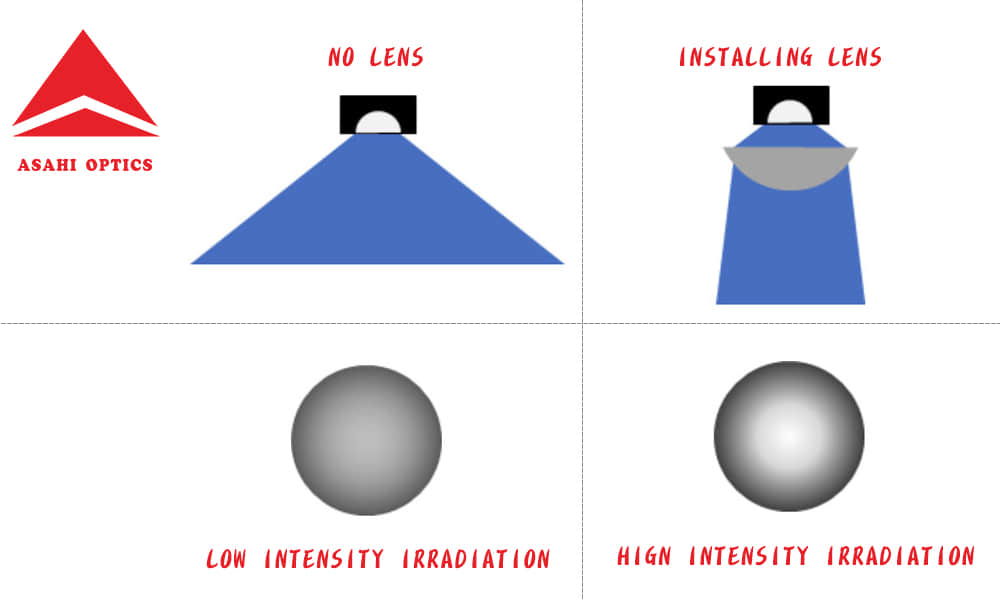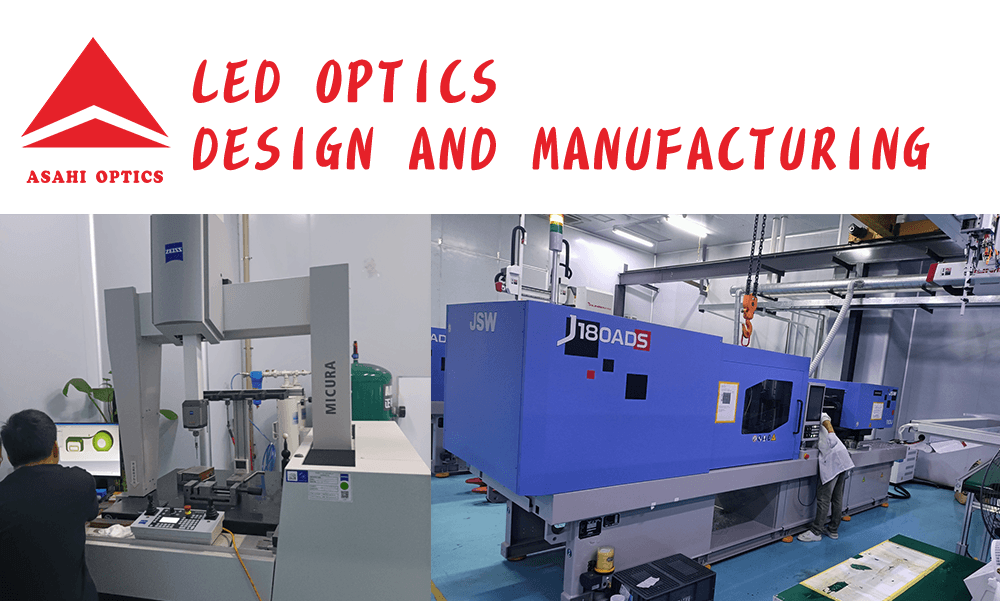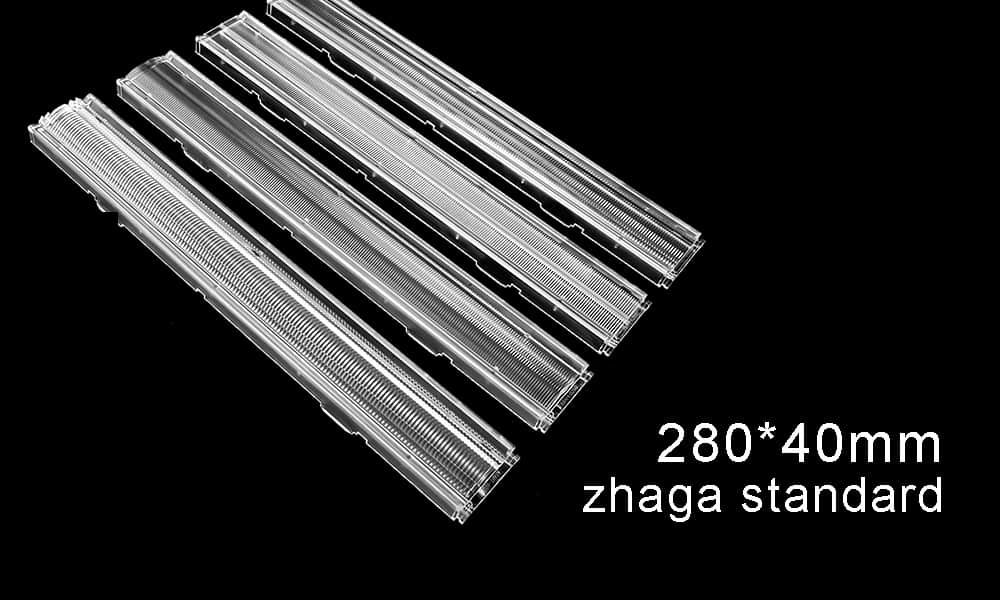LED technology has revolutionized the lighting industry, but a common question is: Can LED lamps operate without optical lenses? The answer is yes, but not in all scenarios. The presence or absence of a lens directly determines a lamp's luminous efficacy, light distribution quality, and application areas.
As a leading optical lens manufacturer, Asahi Optics will provide an in-depth analysis of the core role of lenses in LED systems.
When can optical lenses be omitted?
In some basic lighting applications where light quality is less critical, LEDs can indeed operate without dedicated lenses. For example, secondary or decorative lighting can use strips, recessed light coves, or certain ambient lighting applications.
In these applications, the primary goal is to produce uniform, soft light rather than precisely control the beam. Therefore, diffusers or light guides are often used in place of lenses to eliminate glare from point-source light sources.
Why do most professional LED lighting applications require optical lenses?
When lighting needs go beyond the basic stage of simply "illuminating" and require specific functionality, efficiency, and angle control, optical lenses become core components. This is where the value of an excellent lens design manufacturer becomes apparent.

1). Precise light distribution control: The LED chip itself is a bright point light source, emitting light over a wide range (typically 120-170 degrees). Without a lens, the light would scatter in all directions, resulting in less than 50% utilization. Optical lens design, like a traffic police officer, precisely "distributes" light to the desired area, creating a specific beam angle (such as 15° spotlight, 25° medium beam, 45° wallwash), meeting the stringent standards for street lighting, stadium lighting, commercial spotlights, and more.
2). Improving light efficiency and energy savings: By reducing light scattering and waste, lenses can focus more light energy on the target area, providing higher illumination with the same power consumption and achieving energy savings. Professional optical design minimizes internal losses and ensures maximum light output.
3). Eliminating glare and improving visual comfort: Glare is one of the main problems with poor lighting. Optical lenses can use special serrations, patterns, or microlens arrays to soften edges and reduce peak brightness, creating a soft and uniform light pattern and creating a comfortable and safe visual environment. This is crucial for spaces like offices, classrooms, and retail stores.
The Asahi Optics team has developed over 200 custom light pattern solutions for client.
Conclusion
Although LEDs can operate without optical lenses in simple applications, optical lenses remain an indispensable core component in LED systems, from improving energy efficiency to achieving scenario-based lighting needs.
In this highly competitive market, partnering with an experienced lens design manufacturer like Asahi Optical Design is a strategic choice for creating leading-edge lighting products.




